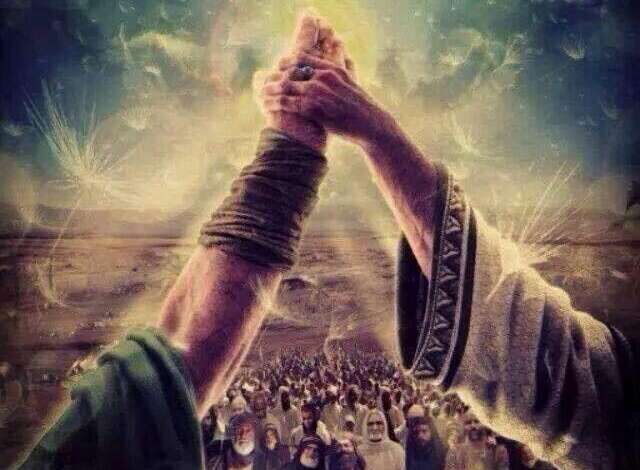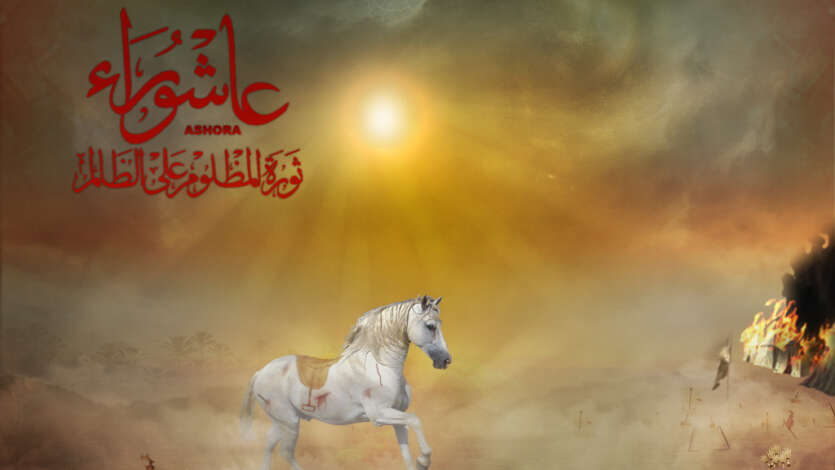Souls Sacrificed for Religion
By: Āyatullah Muḥammad Taqī Miṣbāḥ Yazdī
Translated by: Muhammad Reza Dorudgar & Zaid Alsalami
PART FIVE
Repetition of History
That which occurred during the time of Imām Ḥusain (a.s.) could also occur again in any other time. There will always be the possibility that certain conditions and circumstances arise where the foundation of Islam will be threatened and religion’s involvement in society will face serious danger. In such conditions, Muslims have a duty to stand against this threat and danger. Muslims must do what is necessary to keep the foundation and entity of Islam in society.
Of course, there are different elements that bring about danger for the entity of Islam in society. At times the threat and danger of loss of religion could be from casting of intellectual and theological misconceptions that cause weakening of faith and belief of people and the society. Naturally, opposing such threats is done by educating and teaching people, along with strong cultural work. It is for this reason that the holy Imāms (a.s.), in any opportunity they had and whenever circumstances allowed them, focused on training students, answered misconceptions and strengthened the intellectual foundation of those around them. One example for this was training the likes of Hishām ibn al-Ḥakam for this purpose, to debate with other people and refute misconceptions. In any case, the way of dealing with such threats is not sacrificing of life, and preserving of religion is done by educating and training people and the society.
However, there are times where the matter is greater than this and the situation is that religion itself and its existence is in danger. It could get to a stage where practicing religion in society becomes very difficult, and Islam and Islamic rulings and values are going to be completely eradicated from society. In this special condition, it is possible that one or a few people can personally remain committed to Islam and apply it, but the general status of society proceed in such a way that religion no longer has any social and public presence. This is when preserving religion necessitates sacrifice of life.
Let’s suppose that, God forbide, a foreign government was to take control of our country, and not allow people to pray, fast, mourn for Ahlul Bayt and Imām Ḥusain (a.s.), and so on. Something similar to what the communists in the former USSR did when they ruled over Central Asian countries. The Communists shut down mosques, changing them to house soldiers, museums or anything else. Propagating religion and discussing any religious topic was not allowed. Teaching the Quran was banned in schools, and, in one sentence, what they enforced was that religion has no place whatsoever in the public and in outside society.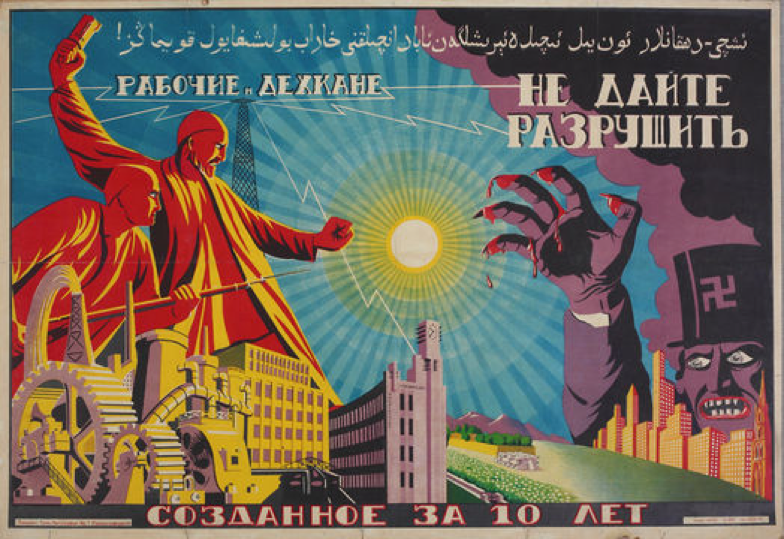
The condition we mentioned is not limited to this example, but many other circumstances can also be mentioned. Another situation was the Umayyad government, especially that of Yazīd ibn Muʿāwiyah and what he created in the Islamic society. The Umayyad government did not forbid people from performing their religious obligations and duties, and it did not say “don’t pray,” “don’t fast,” and “don’t go to ḥajj”. Not only did the Umayyads not forbid people from doing so, but they themselves also prayed, built mosques, have congregational prayer, appointed a leader for ḥajj (amīr al-ḥaj), and sometimes they joined the ḥajj pilgrimage as well. Therefore, in a certain way, the Umayyads promoted Islam, the Quran, prayer, mosque, other Islamic rulings, so they were not banning or forbidding people from performing their religious duties.
Based on this, how can we say that religion was in danger, and why did Imām Ḥusain (a.s.) feel he has an obligation and duty to uprise to preserve religion? At that time, religion in its appearance was public, common and active. Were they telling people not to pray, or not to do adhān, or not to recite Quran or build mosques?
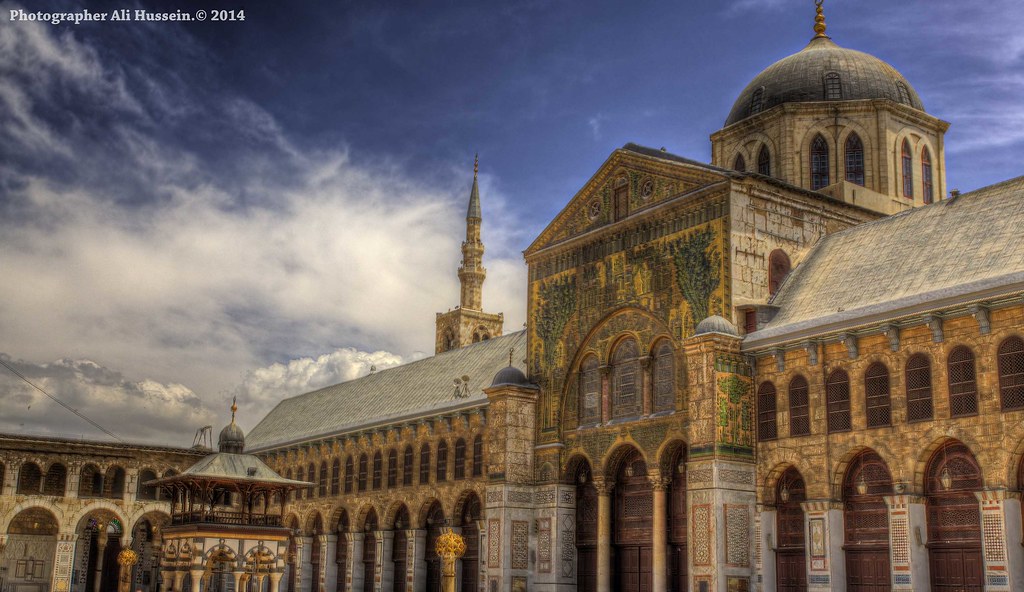
Those who have travelled to Syria and Damascus have seen the Umayyad Mosque in its magnificence, still standing after hundreds of years. The Umayyads built this large mosque, and it stands as a witness to this reality, that the Umayyads did not oppose building mosques, reciting adhān, praying in congregation or Friday prayer. They implemented these things as well.
If this was the case, what was the problem then, and why did Imām Ḥusain (a.s.) feel that religion was in danger? What happened for him to say Islam is going to disappear:
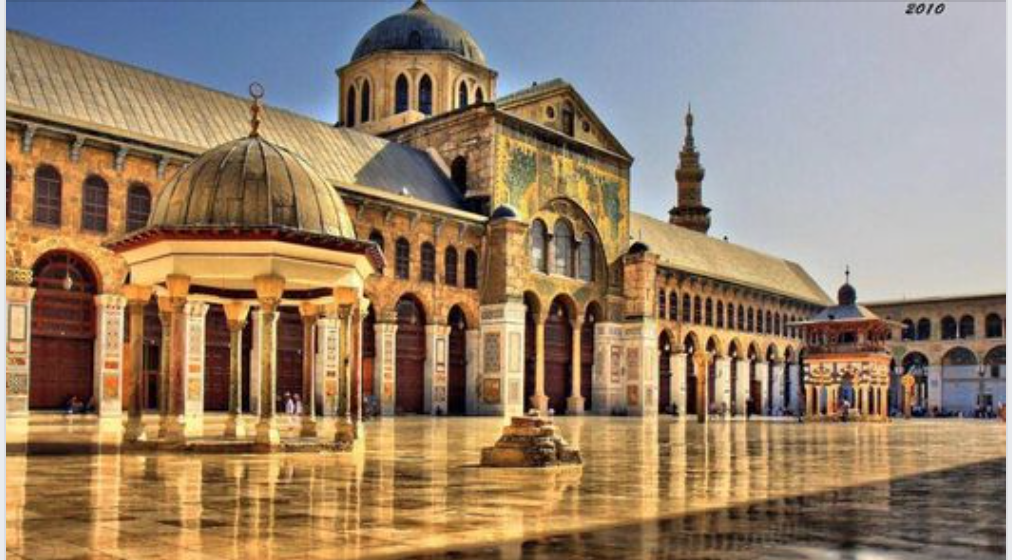
وَعَلَى اَلْإِسْلاَمِ اَلسَّلاَمُ إِذْ قَدْ بُلِيَتِ اَلْأُمَّةُ بِرَاعٍ مِثْلِ يَزِيدَ
And farewell to Islam, as the ummah is inflicted with having a ruler like Yazīd.[1]
Imām Ḥusain (a.s.) explaining the philosophy of the ʿĀshurāʾ revolution
The Master of martyrs (a.s.) answered this question, saying:
إنَّ هؤُلآءِ القَومِ قَد لزِموا طاعةَ الشَّیطانِ وَتَوَلَّوا عن طاعةِ الرَّحمانِ وَاظهَروا الفَسادَ وَعَطَّلوا الحُدودَ واستأثَرُوا بالفَيءِ وَاَحَلُّوا حرامَ اللهِ وَحَرَّموا حَلالَهُ.
These folks have committed themselves to obeying Satan, and have renounced themselves from obeying the All-merciful. They openly demonstrated corruption, abolished the penal-law, monopolised wealth, made permissible that which God forbid, and forbade that which God permitted. [2]
In this statement, Imām Ḥusain (a.s.) is explaining why he rose up, and why he was willing to sacrifice his life and the life of his children, and his family become captives. But what did the Umayyads do?
Imām Ḥusain (a.s.) did not say they did not pray, or did not fast, or did not go to ḥajj, because they did all these things. Then what was the problem?
Imām Ḥusain (a.s.) said the Umayyads have established something and follow in such a direction that will result in God not being obeyed in society, and Satan will be openly obeyed. The Umayyads did committed every single act of debauchery, and did it publicly, resulting in divine law being abandoned. Almighty God’s law was not applied in society, and His unlawful became lawful and His lawful became unlawful.
Consuming intoxicants is forbidden in Islam, and if a Muslim in an Islamic society was to do this publicly, they will be punished. The Umayyads and their supporters and agents were drunkards, intoxicating themselves publicly. If someone should be punished for intoxication, the rulers, their associates and kin who drank should be the first to be punished.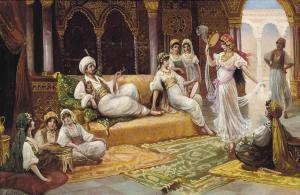
The Umayyads withheld from implementing this Islamic law, abandoning it all together. In other cases, whenever they felt that it will not serve their interests, or benefit them or those around them who supported them, or, in today’s terms “voted” for them, the Islamic law was ignored and nobody punished.
It is for this reason that Imām Ḥusain (a.s.) said the Umayyads “abolished the penal-law…. made permissible that which God forbid, and forbade that which God permitted.”
Therefore, the meaning of Islam being in danger during the time of Imām Ḥusain (a.s.) was not that people cannot pray, or fast, or turn back to idol worshipping. Nobody told the people to prostrate to idols, or stop praying and stop fasting, or that the Quran should be removed. The Umayyad Mosque was a centre for Quran reciting and memorising, and many went there to learn and memorise the Quran.
Then where was the problem?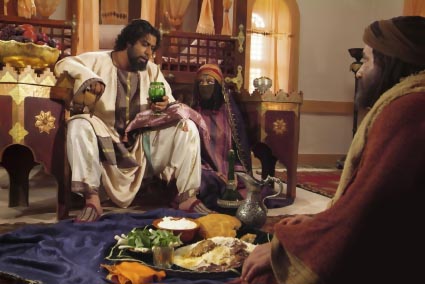
The problem was in the “social rulings” of Islam. Personal rulings, like prayer and fasting did not really create any issue or problem with the government. Whether people prayed or not made no difference for Muʿāwiyah.
In a sermon Muʿāwiyah delivered, he himself said:
إِنِّي وَاَللَّهِ مَا قَاتَلْتُكُمْ لِتُصَلُّوا وَلاَ لِتَصُومُوا وَلاَ لِتَحُجُّوا وَلاَ لِتُزَكُّوا إِنَّكُمْ لَتَفْعَلُونَ ذَلِكَ وَلَكِنِّي قَاتَلْتُكُمْ لِأَتَأَمَّرَ عَلَيْكُمْ.
By God, I have not fought against you to make you pray, nor to fast, nor to make the pilgrimage, nor to pay zakāt. Indeed, you do that already. I fought against you so that I might have power [rule] over you.[3]
In other words, pray, fast, build mosques, and go to ḥajj, do what you wish, as long as you do not get involved with my government!
Paraphrasing this statement in our language of today’s society, Muʿāwiyah is saying do whatever you want in worshipping, mourning, beating your chest, lifting flags, devoting programs and food for Imām Ḥusain and Abū al-Faḍl (a.s.), but do not in any way get involved in politics and the government.
Cooking food and Muḥarram processions with chest beating and chains would not create any danger for a government like Muʿāwiyah’s. This is why they not only allowed such things, but also encouraged them as well. They would contribute in giving rice and food items, gift flags, publish Qurans for us and pay to repair our mosques. Of course, we do unfortunately see some Islamic countries do not have money for mosques, but do have money allocated for worship places of other religions (churches, synagogues, temples, etc.).
In any case, merely having a mosque, prayer, a Quran, mourning or beating chest will not bring any harm or danger to governments, and governments would not care about these matters. That which is a major problem for governments and will bring trouble is Islam entering into the social domain. A government who wants to engage in corruption and debauchery, or pillage the wealth of the nation to take control of it for their personal or political gains and compromise with devils and imperialist powers, will certainly have problem with Islam’s social rulings, seeing them as obstacles for their interests.
That which obstructs this kind of a government to reach its goals and self-interests is not individual personal matters and rulings of Islam, like prayer, fasting and worship. It is the Islam that wants to interfere in the field of social, political and governmental matters and has rulings, with commands and prohibitions regarding them. If Islam wants to stand as the “scale of social laws” and be appointed to manage social relations and matters based on Islamic law, this is when friction and disturbance between religion and government will appear. This is when the government will try to exclude and stop religion. When this occurs, and the foundation of Islam is faced with danger, it could be that saving it and allowing it to continue becomes dependent on sacrifice.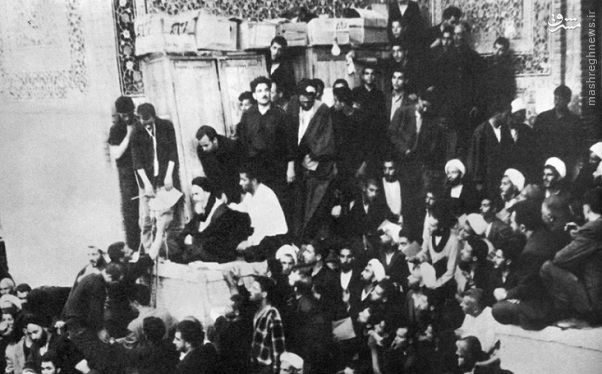
Imām Ḥusain’s Uprising; the model for Khomeini’s Revolution
The Islamic Revolution of Iran and the movement of Imām Khomeini (r.a.) was formed precisely on this basis. Our youth were around in those early days, and if they want to, they can read about this in books and reports. The older generation can recall the lectures of Imām Khomeini in the years 1963–64, when he was giving lectures in Masjid Aʿẓam and Madrase Fayḍiye in Qom. The central focus and outlining foundation of his talks was him saying:
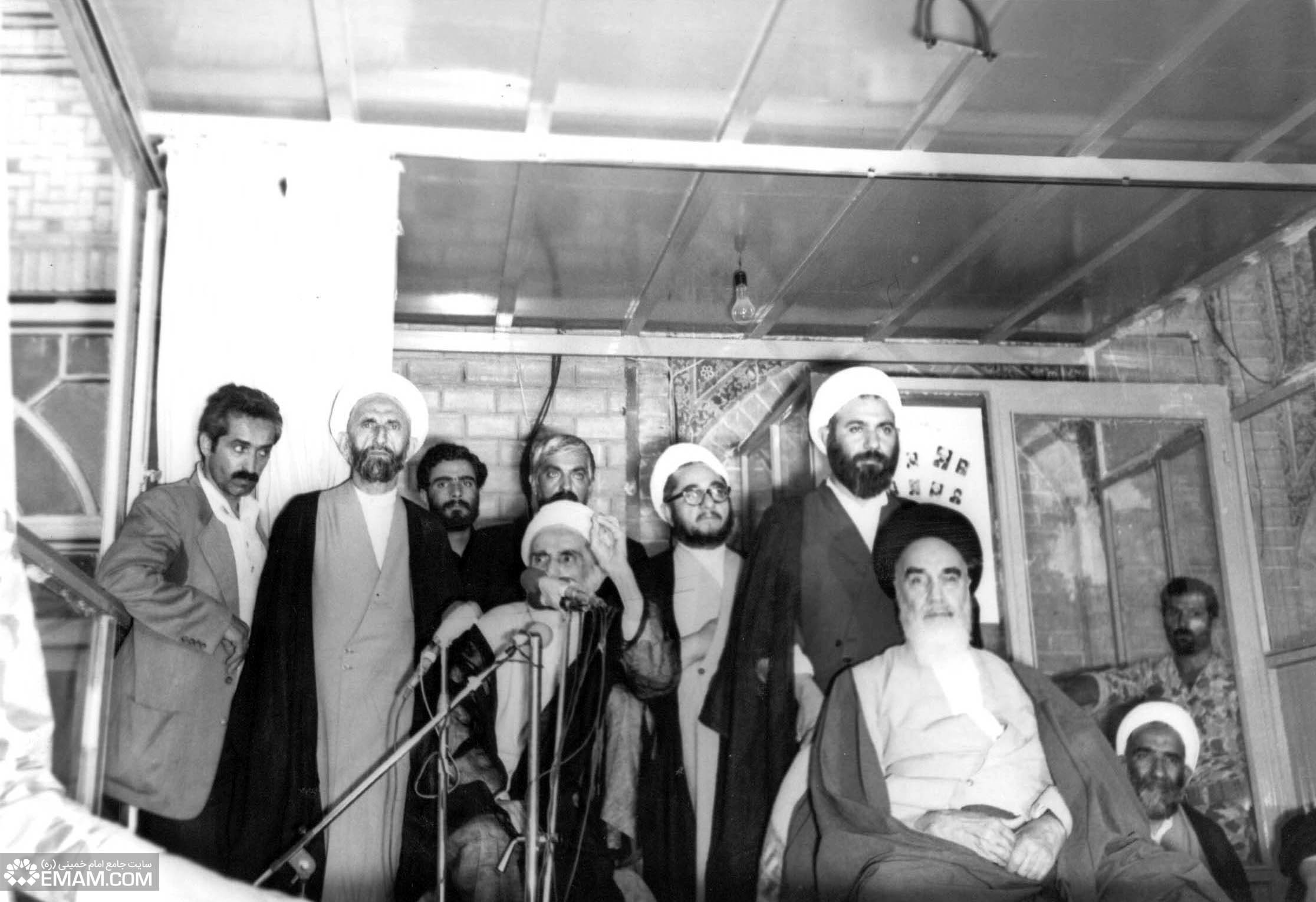
O Merchants, sellers, farmers, scholars, all people and the nation of Iran, I feel Islam is in danger.
In another place, he said:
ʿUlamā of Islam, rescue Islam.[4]
In many occasions, Imām Khomeini always repeated this issue, that “Islam is in danger,” in order to mobilise the people and to get people to actively engage in joining forces against the despotic Shah regime. When Imām Khomeini spoke this way, shouting aloud, it made people from different groups and various levels of society who shiver. They felt with all their existence that they had to defend of Islam.
But what happened for Imām Khomeini to say that Islam was in danger? What kind of harm was the Pahlavi regime doing to inflict on Islam? Did the regime say not to pray, or forbid people from building mosques and reciting the Quran? Did it oppose with mourning and majālis for Imām Ḥusain and Ahlul Bayt (a.s.)? Did it obstruct people from going to ḥajj pilgrimage, or tell people not to believe in God?
Those who did not seen those days and do not remember should study history in order to understand this issue and gain an insight to how it was. The issue was not that the Pahlavi regime obstructed people from praying, or stopped the building of mosques, or opposed mourning. Yes, the father, Reza Shah Pahlavi (1878–1944), when he first gained power, for a while he did ban mourning processions for Imām Ḥusain (a.s.). He then realised what he did was a mistake, and then authorised it. The son, Mohammad Reza Pahlavi (1919–1980), to a certain extent, learnt from his father’s experience and did not ban it, and along with that were the social conditions that did not even allowing him to do so.
So, Mohammad Reza Shah, contrary to his father, not only did not ban mourning ceremonies, but he also hosted them in his Sa’adabad Palace, broadcasting the ceremony on radio as well. The Shah did not oppose prayer, or fasting, or going to ḥajj. He himself went to Mecca, did pilgrimage, and pictures of him wearing his iḥrām clothes were hung up everywhere in public places and offices, showing people that the Shah was not only a nice person, but a devout Muslim as well. Not only did the Shah not dismiss the presence of God, he referred his monarchy to God. He would say “The Shah is the Shadow of God,” to create acceptability among people.
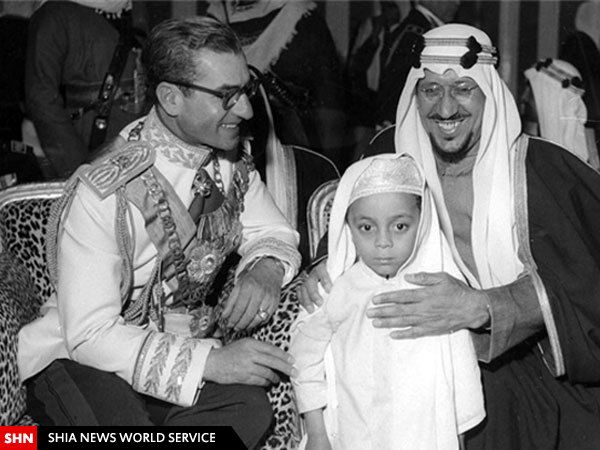

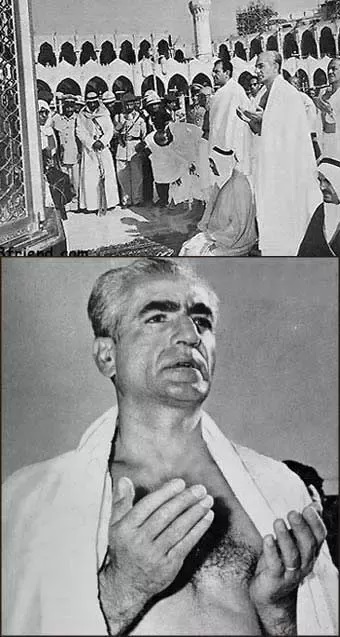
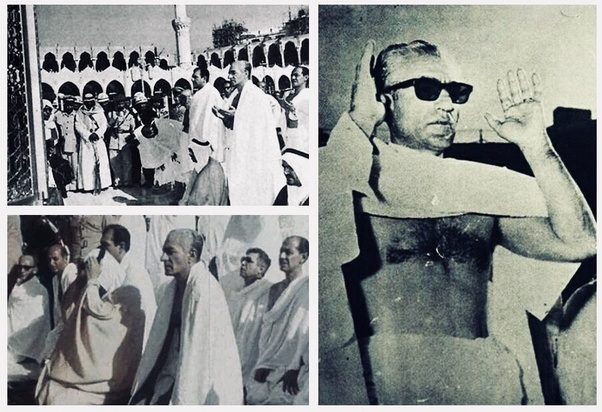
Then what happed that Imām Khomeini felt such danger for Islam, and echoed that Islamic scholars must come to rescue Islam?
The fundamental problem of Shah’s regime was that he was initiating a movement that had distant plans. Due to the foresight Imām Khomeini had, he realised that these actions were the beginning of a long-term process of minimising the social presence of Islam and eventually its total obliteration.
This started with the “Bill of Provincial and State Councils”. One of the noteworthy items in this bill was that for the first time in Iran, the criterion on Islam and being a Muslim to vote or be voted was cancelled. In one of the clauses of this bill that the Shah government proposed to the parliament, neither for voters nor for voted, was that it was not necessary to be Muslim, and it did not matter what sect or religion they were. Another important clause that was mentioned in this bill was that it was not necessary for parliament representatives to swear oath One of other important lines of this bill was that it was not necessary for council representatives to be sworn into the cabinet with a Quran, but rather it was enough to be sworn in with whatever holy book they believed in. The motive for this second issue had a clear justification, in that being a Muslim is not a condition for becoming a parliament representative, and naturally you cannot ask a Christian or a Jewish representative to swear on the Quran. They have to swear on the Bible. With this justification, in the context of Bill of Provincial and State Councils, they removed swearing on the Quran, and replaced it with “swearing on a holy book”. The reality is that this was all staged as preliminary work to introduce and recognise the Bahai cult, and for the government to openly endorse them. The matter was that the next day Bahaism will be officially recognised, and a Bahai representative will be brought to the parliament and be sworn in according to the so-called Bahai ‘holy book’.
Among other acts the Shah did in his process of weakening the social presence of Islam was his strong and public opposition against the clerics. He would say: “I understand the spirit of Islam more than these ākhunds”. These were his very words, and by saying such things he wanted to show that what he does is what the spirit of Islam demands. He would say that these clerics and men with turbans on their heads do not understand anything, and know nothing about politics or social matters, because they know nothing about Islam, society or politics, and they make fuss for no reason.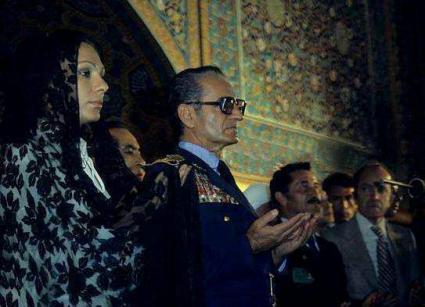
The meaning of what the Shah intended in what he said was that clergymen must have nothing to do with politics and governing the country. They should only be involved in their own studies and discussions. The Shah said that clerics do not understand politics, nor do they have the executive ability to rule. He said I as the king of country understand the spirit of Islam better than them!
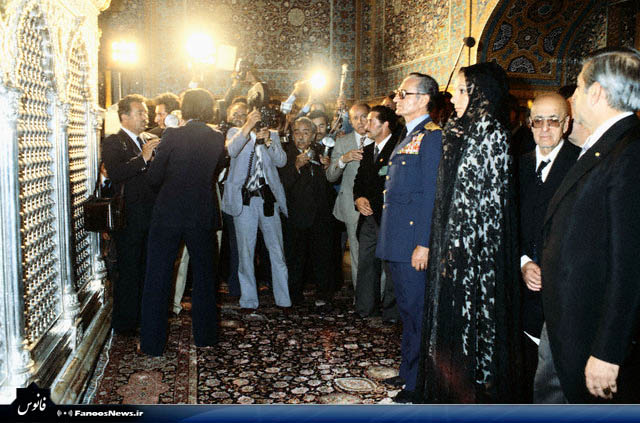

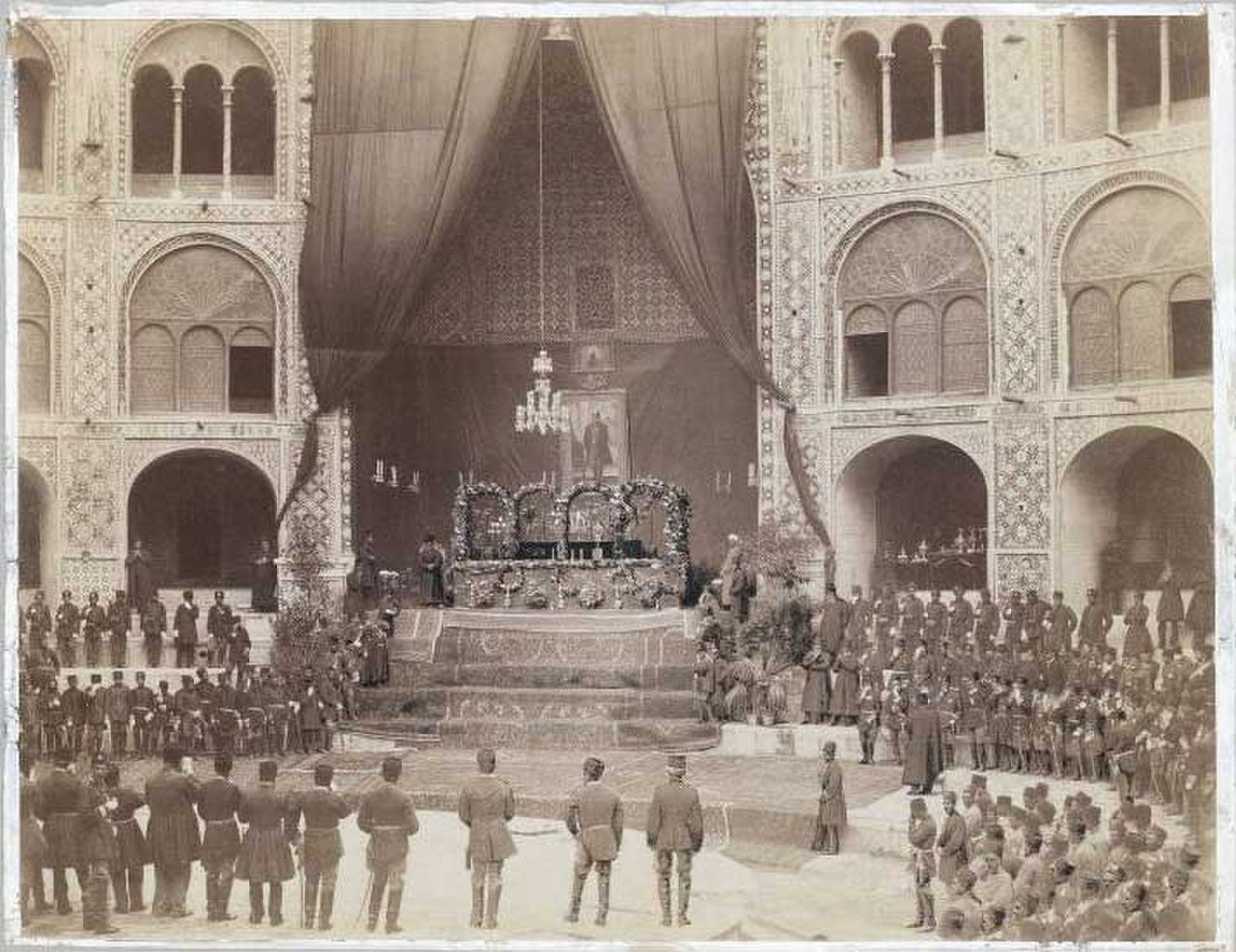
The Shah stressed very much on this, where clerics (rūḥāniyyat) must have no involvement in politics, statesmanship or the government. He would say:

When clerics ask to build a mosque, we build a mosque. When they ask to print a Quran, we print the best Quran for them. If they want to have mourning ceremonies, and for people to mourn, there will be no restrictions, and we will contribute as well. We ourselves have mourning programs in our palace, and the clerics can come and participate, and recite eulogies on the palace pulpit. But, don’t get involved with politics or the government. Clerics saying this law is good, that law is not in line with Islam, this law should be amended…These are political matters, related to us, and not related to clerics.
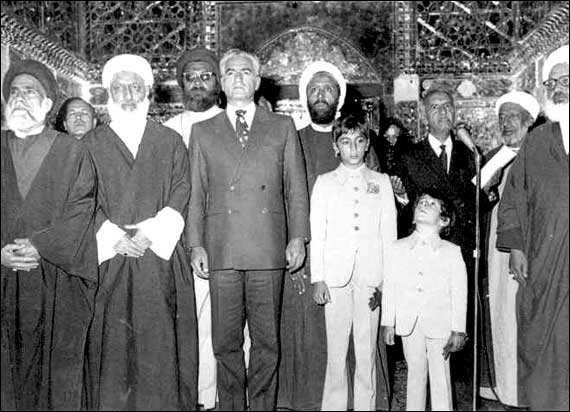
The Shah would say that they are involved in government and politics, and managing the country. The clerics should care about religion and the religious affairs of people, and solve their religious matters and problems.
In brief, what the Shah was intending to say was to separate religion from the state. This was the very same slogan Christians used and still use:
Render unto Caesar the things that are Caesar’s, and unto God the things that are God’s.[5]
This means that government, politics and managing secular affairs is at the disposal of kings and monarchs, and religion, scripture, resurrection, is for God, the Apostle, the Church and clerics.
Cont…..
[1] Biḥār al-Anwār, vol. 44, p. 326, ḥ. 2
[2] Biḥār al-Anwār, vol. 44, p. 382, ḥ. 2
[3] Al-Mufīd, al-Irshād, vol. 2, p. 10. In the English version of this book, see: The Book of Guidance, p. 260.
[4] Imām Khomeini was pleading to clergymen and ʿUlamā of Qom, Najaf, and everywhere else to rescue Islam. Details of these lectures and talks can be found in Ṣaḥīfe Imām. See: http://staticsml.imam-khomeini.ir/en/File/NewsAttachment/2014/1695-Sahifeh-ye%20Imam-Vol%201.pdf
[5] Bible, Mark 12: 17.
![]()

